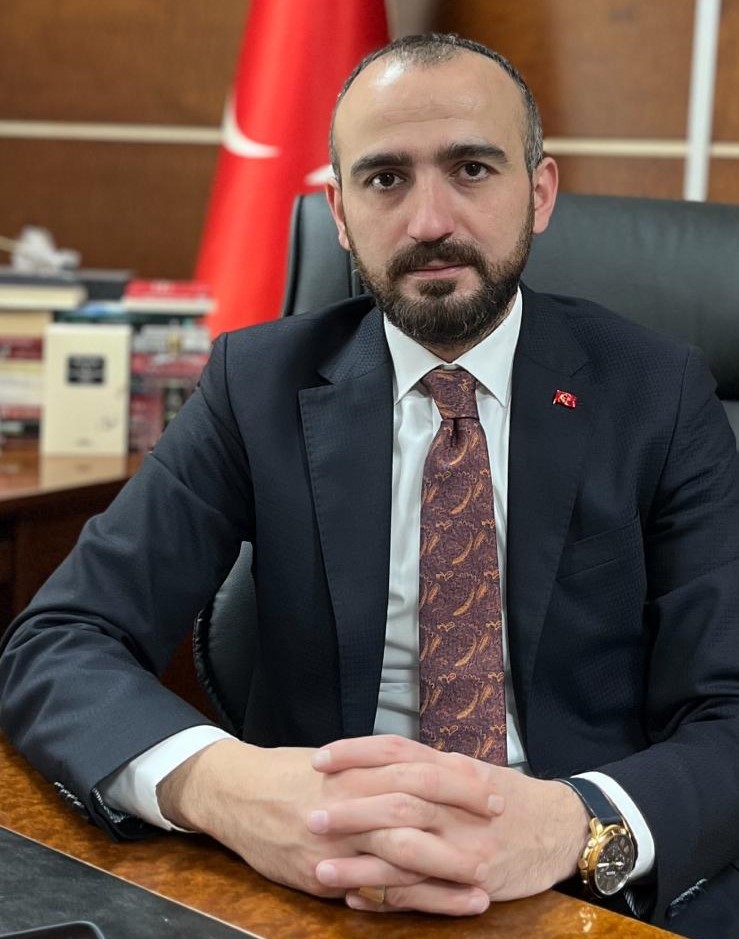It is possible to fight cancer with immunotherapies.
In recent years, among targeted therapies for cancer, immunotherapies have emerged as a prominent method, allowing the individual’s own immune system to fight cancer, stated Oncology Specialist Prof. Dr. Dinçer Aydın, “With immunotherapy …

In recent years, targeted therapies for cancer have highlighted methods such as immunotherapies, which use the individual’s own immune system to fight cancer, according to Oncology Specialist Prof. Dr. Dinçer Aydın. “With immunotherapy, the body’s immune system is stimulated, activating defense mechanisms, thus organizing a comprehensive fight against tumor tissue,” he said.
Immunotherapy, developed to use the body’s immune system to attack cancer cells, significantly increases treatment success. Prof. Dr. Dinçer Aydın, a Medical Oncology Specialist at VM Medical Park Kocaeli Hospital, made statements regarding cancer treatments. He mentioned that innovative treatments, which are gaining importance in cancer treatment every day, are yielding quite promising treatment results. “These treatments offer options that will contribute to patients’ life expectancy and quality, while in some patients, they create treatment responses that will result in complete healing. While chemotherapy drug applications have maintained their place and validity in treatment since 1950, targeted applications such as smart drugs and immunotherapies greatly increase the success of cancer treatment,” he stated.
“Great treatment successes have been achieved in oncology with immunotherapies in recent years.”
Continuing his speech, Prof. Dr. Aydın stated, “Thanks to the identification of the human genome map and the cancer genome map, the increasing knowledge about cancer genetics and biology continues to change cancer treatment applications. Now, alongside treatments that have formed the basis of cancer treatment for years, such as chemotherapy and radiotherapy, significant treatment successes have been achieved in oncology in recent years with smart drugs that only affect tumor tissue and immunotherapies that aim to destroy tumors by activating the person’s immune system.”
“Side effects are less than those of chemotherapy.”
Providing information about immunotherapies, Prof. Dr. Aydın noted, “Thanks to immunotherapies, which have risen to the top among targeted cancer treatments in recent years, cancer is being fought using the individual’s own immune system. The immune system of the body is stimulated with immunotherapy, activating defense mechanisms, thus organizing a comprehensive fight against tumor tissue. As a result of this struggle, cancerous cells are destroyed, and their growth and spread can be halted. In smart drugs, cancer cells are specifically targeted without affecting other cells in the body. Thanks to smart drugs that target cancerous cells, both more effective treatment is provided, and a higher success rate is achieved. Alongside this positive effect, thanks to smart drugs and immunotherapies that only target the tumor and have minimal negative effects on healthy cells, treatment-related side effects are significantly lower compared to chemotherapy,” he expressed.
“Preferred in the treatment of many types of cancer.”
Prof. Dr. Aydın emphasized that smart drugs and immunotherapies, which provide successful results in many cancers, are planned specifically for the patient and tumor biology. “Under the heading of personalized treatment models, each patient should be evaluated separately, and the person’s tumor cells should be tested for suitability for smart drugs and immunotherapy. After the tumor cells of the person are tested for these treatments, treatment should be initiated for patients predicted to benefit from these therapies. Smart drugs and immunotherapies are used either in combination with chemotherapy or alone in suitable patients, considering the type of tumor, stage, genetic analysis of the tumor, the patient’s age, general condition, and other disease factors. Today, smart drugs and immunotherapies are used in the treatment of many types of cancer including lung, breast, prostate, skin, bowel, stomach, head-neck, ovarian, uterine, cervical, and lymph node cancers,” he said.
“Much more positive developments are expected regarding both immunotherapy and smart drugs.”
Continuing his speech, Aydın stated, “With the identification of the cancer genome map and as a result of numerous scientific studies in innovative targeted therapies, much more positive developments regarding both immunotherapy and smart drugs are expected in the coming years. It is anticipated that due to advancements in this treatment area, there will be a significant increase in the number of treatment options with very high success rates and fewer treatment-related side effects.”







